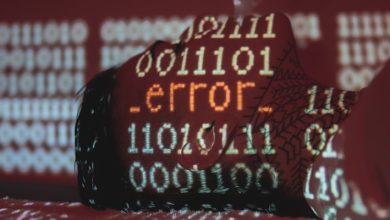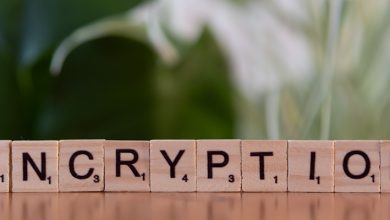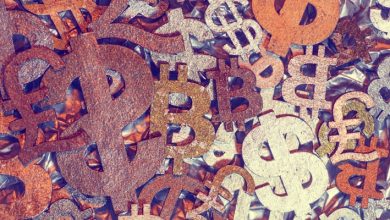The Importance of Security Audits in DeFi Investments

- Understanding the risks of DeFi investments
- The role of security audits in ensuring trust in DeFi projects
- How security audits can prevent smart contract vulnerabilities
- The impact of security breaches on DeFi investors
- Choosing the right security audit firm for your DeFi investments
- Regulatory considerations for DeFi projects and security audits
Understanding the risks of DeFi investments
When considering investing in Decentralized Finance (DeFi) projects, it is crucial to understand the risks involved. DeFi investments can be highly volatile and susceptible to various security threats. It is essential to conduct thorough research and due diligence before committing funds to any DeFi project.
One of the primary risks of DeFi investments is smart contract vulnerabilities. Smart contracts are self-executing contracts with the terms of the agreement directly written into code. If there are any bugs or vulnerabilities in the code, hackers can exploit them to steal funds or disrupt the platform’s operations. Regular security audits can help identify and mitigate these risks.
Another risk factor to consider is the potential for hacking attacks. DeFi platforms are often targeted by hackers due to the large sums of money involved. In the past, several high-profile DeFi hacks have resulted in significant financial losses for investors. By conducting security audits, developers can identify and address potential vulnerabilities before they are exploited by malicious actors.
Moreover, DeFi investments are subject to regulatory risks. As the regulatory landscape around DeFi continues to evolve, investors may face uncertainty regarding the legality of their investments. It is essential to stay informed about regulatory developments and ensure compliance with relevant laws and regulations to avoid legal repercussions.
In conclusion, understanding the risks of DeFi investments is crucial for protecting your funds and making informed investment decisions. By conducting security audits, investors can mitigate smart contract vulnerabilities, reduce the risk of hacking attacks, and ensure compliance with regulatory requirements. Remember to always do your research and exercise caution when investing in DeFi projects.
The role of security audits in ensuring trust in DeFi projects
Security audits play a crucial role in establishing trust within the decentralized finance (DeFi) ecosystem. By conducting thorough examinations of DeFi projects, auditors can identify potential vulnerabilities and weaknesses in the smart contracts and protocols. This helps to ensure that investors’ funds are secure and protected from malicious actors.
One of the main benefits of security audits in DeFi projects is the prevention of hacks and exploits. By proactively assessing the codebase for any security flaws, auditors can help developers patch vulnerabilities before they are exploited by hackers. This not only protects investors’ assets but also safeguards the reputation of the DeFi project in question.
Moreover, security audits can also enhance transparency and credibility in the DeFi space. When investors see that a project has undergone rigorous security testing, they are more likely to trust the platform with their funds. This can lead to increased participation and adoption of DeFi projects, ultimately driving the growth of the ecosystem as a whole.
How security audits can prevent smart contract vulnerabilities
Security audits play a crucial role in identifying and fixing vulnerabilities in smart contracts, which are essential components of decentralized finance (DeFi) investments. By conducting regular audits, developers can ensure that their smart contracts are secure and free from potential exploits that could result in financial losses for investors.
Security audits involve thorough testing of the smart contract code to identify any weaknesses or vulnerabilities that could be exploited by malicious actors. Auditors use various tools and techniques to assess the security of the code and identify potential risks. By addressing these vulnerabilities before deploying the smart contract, developers can prevent potential security breaches and protect investors’ funds.
One of the main benefits of security audits is that they provide an independent and objective assessment of the smart contract’s security posture. Auditors with expertise in blockchain technology and cybersecurity can identify vulnerabilities that may have been overlooked by the developers. This external validation can help build trust among investors and reassure them that their funds are safe.
Furthermore, security audits can help developers comply with regulatory requirements and industry best practices. By following established security standards and guidelines, developers can reduce the risk of security breaches and demonstrate their commitment to protecting investors’ assets. This can attract more investors to the DeFi platform and contribute to its long-term success.
The impact of security breaches on DeFi investors
Investing in DeFi projects can be a lucrative opportunity for investors looking to capitalize on the growing trend of decentralized finance. However, the risks associated with security breaches in the DeFi space cannot be ignored. Security breaches can have a devastating impact on DeFi investors, leading to financial losses and eroding trust in the ecosystem.
When security breaches occur in DeFi projects, investors may lose their investments as hackers exploit vulnerabilities in smart contracts or decentralized applications. These breaches can result in the theft of funds, manipulation of token prices, or disruption of services, leaving investors with little recourse to recover their losses.
In addition to financial losses, security breaches can also have a long-lasting impact on the reputation of DeFi projects. Investors may lose confidence in the security of the ecosystem, leading to a decrease in overall investment activity. This lack of trust can hinder the growth and development of the DeFi space, limiting its potential for innovation and expansion.
By conducting thorough security audits of DeFi projects before investing, investors can mitigate the risks associated with security breaches. Security audits help identify and address vulnerabilities in smart contracts and decentralized applications, reducing the likelihood of exploitation by malicious actors. Investing in projects that prioritize security can help protect investors’ funds and uphold the integrity of the DeFi ecosystem.
Choosing the right security audit firm for your DeFi investments
When it comes to securing your DeFi investments, choosing the right security audit firm is crucial. There are several factors to consider when selecting a firm to conduct a security audit of your investments in the decentralized finance space.
One of the key considerations when choosing a security audit firm is their reputation in the industry. Look for a firm with a proven track record of conducting thorough and reliable security audits for DeFi projects. Additionally, consider the experience and expertise of the firm’s team members in the field of cybersecurity and blockchain technology.
Another important factor to consider is the methodologies and tools used by the security audit firm. Make sure that the firm employs industry best practices and state-of-the-art tools to identify and address vulnerabilities in DeFi smart contracts and protocols. A comprehensive security audit should include a thorough review of the codebase, as well as testing for common security issues such as reentrancy bugs and denial-of-service attacks.
Furthermore, consider the cost of the security audit services provided by the firm. While it is important to prioritize the security of your DeFi investments, you should also ensure that the cost of the audit is reasonable and within your budget. Compare the pricing of different security audit firms and choose one that offers a good balance of quality and affordability.
In conclusion, selecting the right security audit firm for your DeFi investments is a critical step in safeguarding your assets. By choosing a reputable firm with a skilled team, proven methodologies, and reasonable pricing, you can be confident that your investments are secure from potential threats and vulnerabilities.
Regulatory considerations for DeFi projects and security audits
When it comes to DeFi projects, regulatory considerations play a crucial role in ensuring the security and compliance of the platform. Security audits are essential to identify vulnerabilities and weaknesses in the smart contracts and protocols used in DeFi projects. These audits help in mitigating risks and protecting investors from potential security breaches.
Regulatory bodies such as the SEC are closely monitoring the DeFi space to ensure that projects are operating within the legal framework. Non-compliance with regulations can lead to legal consequences and tarnish the reputation of the project. Therefore, it is imperative for DeFi projects to conduct thorough security audits to demonstrate their commitment to security and compliance.



